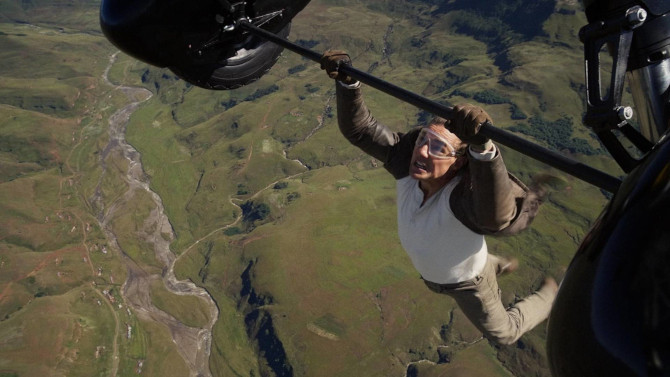
An Impossible Mission
How do you wrap up a franchise like Mission: Impossible? That is, if this even is the final installment... as they’ve made it sound (while at the same time, stars not named ‘Tom Cruise’ pipe up and suggest that might not be so). It has been twenty-nine years, with different writers and visionary directors – from twisty Brian De Palma and the action hair stylings of John Woo, to the lens flares of J.J. Abrams and animation expert Brad Bird, it was only about ten years ago that the franchise decided to opt for The Usual Suspects scribe Christopher McQuarrie for the final four. To return to that opening question once more, you could end with a Sopranos’ style cliffhanger, simply make another entertaining movie like the many before – like Everybody Loves Raymond did it with its final episode, or try to tie everything up in a neat little bow by bringing everything together as the Daniel Craig era did with James Bond. Well, it is definitely more along the lines of the latter example, with some distinct differences.
-
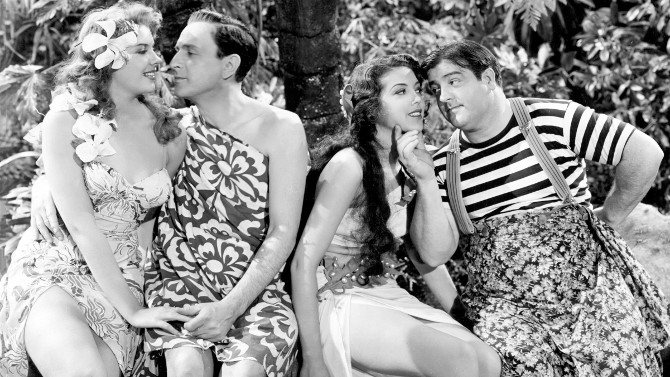
Sarong Side of the Tracks
Pardon My SarongApril 15, 2018Less of a critique than an observation, movies have clearly become freer in many respects – violence, nudity and profanity can now be littered throughout the narrative. . . yet, the twenty-first century has brought with it a more politically correct outlook, and stories are impeded in this very different respect (unlike films during the Motion Picture Production Code and after – which, for many reasons, were able to be more politically incorrect, for lack of a better term). Case and point, Abbott and Costello’s Pardon My Sarong, directed by Erle C. Kenton (Island of Lost Souls; Who Done It?). The piece of dialogue in question finds the comedic duo discussing marriage –
-
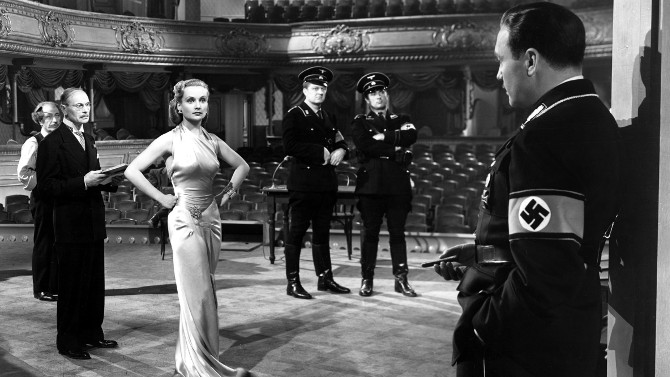
Polish to Perfection
To Be or Not to BeApril 13, 2018To Be or Not to Be walks a complicated tightrope – released in 1942, the World War II set comedy, even by today’s standards, could be called politically incorrect. Satirizing the horrible situation over in Europe (specifically Poland), co-adapter and director Ernst Lubitsch knew, like Charlie Chaplin before him (The Great Dictator), that it was vital to be able to laugh in the face of Hitler and the Nazis, both alleviating the tension of audiences back home with humour while also bringing the Axis power down a notch, highlighting their absurdly ridiculous doctrine and beliefs. A play, or should I say plays within a play, the story follows an acting troupe in Poland managed by producer/director Dobosh (Charles Halton). Starring the husband and wife team of Joseph (Jack Benny) and Maria Tura (Carole Lombard), they are currently bringing Shakespeare’s “Hamlet” to life. Preparing for their next play during the day, “Gestapo” is a satire revolving around Hitler and his cronies, comedy coming from the extensive use of “Heil Hitler”, an inquisition of a young child who the Nazis are worried will not talk, and a joke about how “They named a brandy after Napoleon, they made a herring out of Bismarck, and the Fuhrer is going to end up as a piece of cheese!”. Of course, Maria wants to wear a fashionable dress in a concentration camp scene much to the chagrin of Dobosh, though Greenberg (Felix Bressart), the lowly Jewish actor who desperately hopes of playing Shylock one day, suggests, “It’ll get a terrific laugh” – his go-to catch phrase. Other problems arise, with Dobosh equally unimpressed by Bronski’s (Tom Dugan) Hitler, saying, “I don’t know. . . it’s not convincing. To me, he’s just a man with a little mustache”, to which the makeup man replies, “But so is Hitler” – a line that really hits home.
-
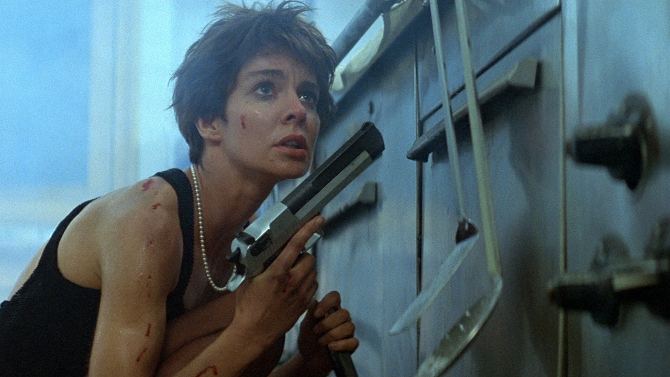
Vive La Femme. . . Nikita
La Femme NikitaApril 10, 2018A rare example of a movie that is less known than (most of) its remakes, Luc Besson’s Nikita (also known as La Femme Nikita), released in 1990, has spawned an American big screen adaptation (1993's Point of No Return, starring Bridget Fonda and Gabriel Byrne), as well as two popular television series: Joel Surnow’s show, centred around Peta Wilson, ran for five seasons starting in 1997; while another version began airing on The CW in 2010, lasting four years, with the heroine this time brought to life by Maggie Q. The only version, hinted at above, that is lesser known than the original feature is a 1991 Hong Kong action remake titled Black Cat. An influential French/Italian co-production from one of the modern masters of action (think Léon: The Professional, The Fifth Element, and Taken – which he wrote and produced), Besson transports us into a strange world, feeling almost dystopic, with a Mad Max-of-the-city type feel. In this landscape we find four hoodlums walking the streets, breaking into a drug store to feed their drug fix. Challenged by a brave store owner (who lives above the shop) and the heavily armed police, the only one of the quartet left alive is Nikita (Anne Parillaud), a wild card punk – she is a violent junkie sociopath with the ear biting skills of Mike Tyson and the unflappable hand of a master marksman.
-
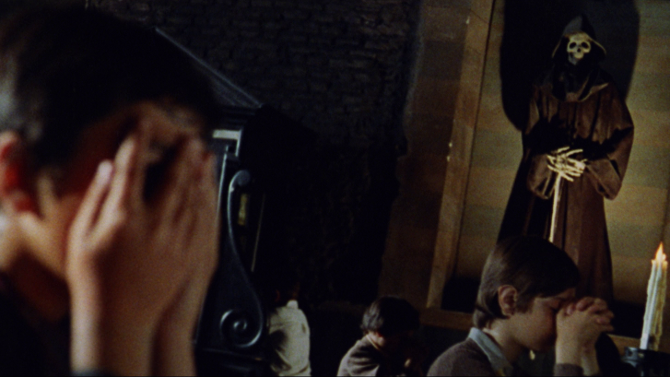
Sitting Ducks
Don't Torture a DucklingApril 8, 2018With a long list of suspects, Lucio Fulci’s Italian giallo Don’t Torture a Duckling revels in its mystery, a small town southern Italian caper that does not, in fact, contain any fowl play – though it does have almost every other aspect of foul play imaginable. Introduced to three tween boys, they are the type of scamps that get into all sorts of shenanigans. Spotting the arrival of some out of town prostitutes, they follow the trail to an abandoned house, keeping informed of all of the sordid action. They see Giuseppe Barra (Vito Passeri), a simple-minded peeping Tom enjoying the view, and he takes offense when they tease him.
-
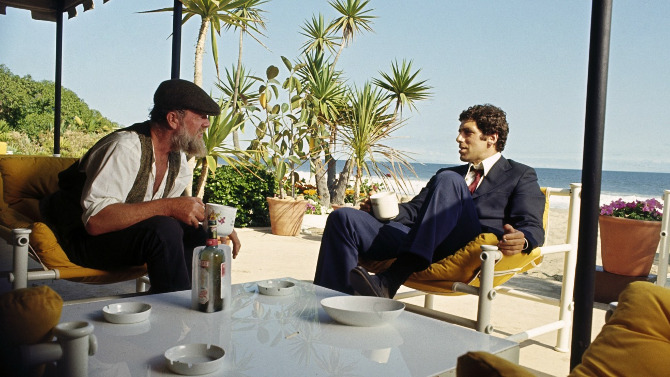
The Marlowe Man
The Long GoodbyeApril 6, 2018Tackling Raymond Chandler’s1953 novel “The Long Goodbye” (which features detective Philip Marlowe) in a unique way, director Robert Altman decided to, “call him Rip Van Marlowe, and we took the position that he had been asleep for twenty years, woke up, and Elliott [Gould] just wandered through that film. . . and that was our idea – that he was wandering through this landscape, the film trying to invoke the morals of a previous time into this early seventies.” Set exactly twenty years after the novel’s release date, detective Philip Marlowe (Gould) awakes in the middle of the night from a deep sleep – voice raspy, five o’clock shadow quickly moving onto six. . . a man in an endless stupor. His retro suits, skinny ties and constant smoking are out of place, much like his 1948 Cabriolet Lincoln Continental Convertible – a gent who is undoubtably from another time (even his salary closely resembles what a detective would make in the late 40s or early 50s).
-
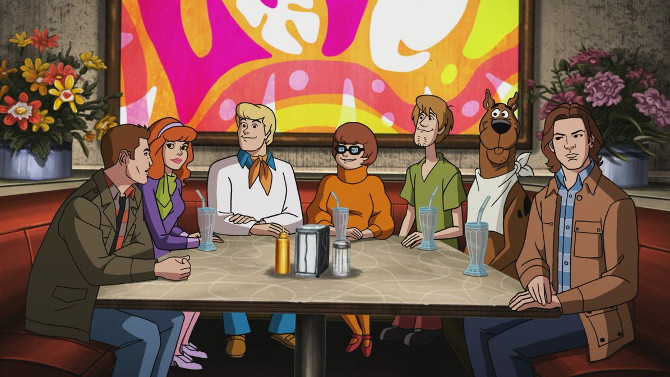
Ruh-roh! Scooby-Doo meets Supernatural
April 2, 2018I generally do not write about television. . . not because I do not like it (I have spent hours upon hours watching sports, Seinfeld reruns, American Pickers, and everything in-between), but rather, have not found the time to build a new area on my website that would pay tribute to the different, though no less entertaining, artistic medium in the proper way. Though today, I cannot help myself. For thirteen years, heading all the way back to September 13th, 2005, I have tuned in to the adventures of Sam (Jared Padalecki) and Dean Winchester (Jensen Ackles) on the television series Supernatural. I was seventeen years old at the time, and its alluring combination of demons of the week, hitting the road in Dean’s 67 Chevy Impala, the classic rock tunes, and the dynamic relationship between the brothers, drew me in.
